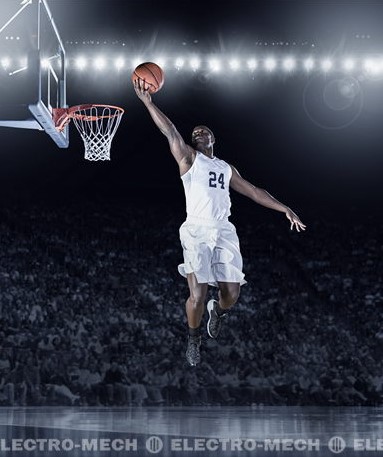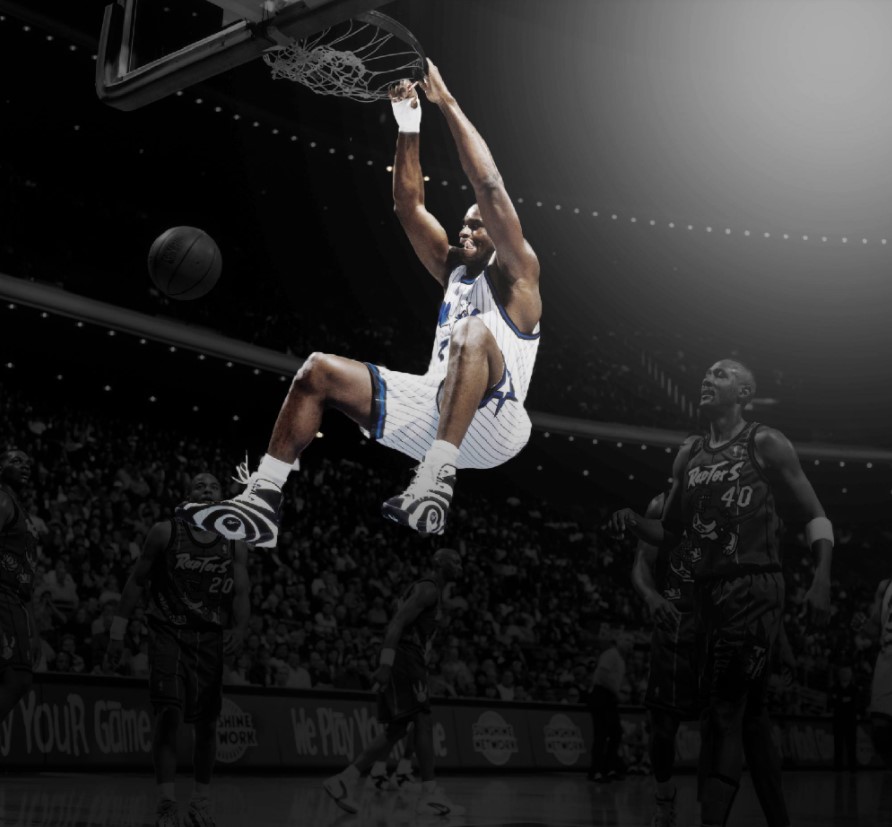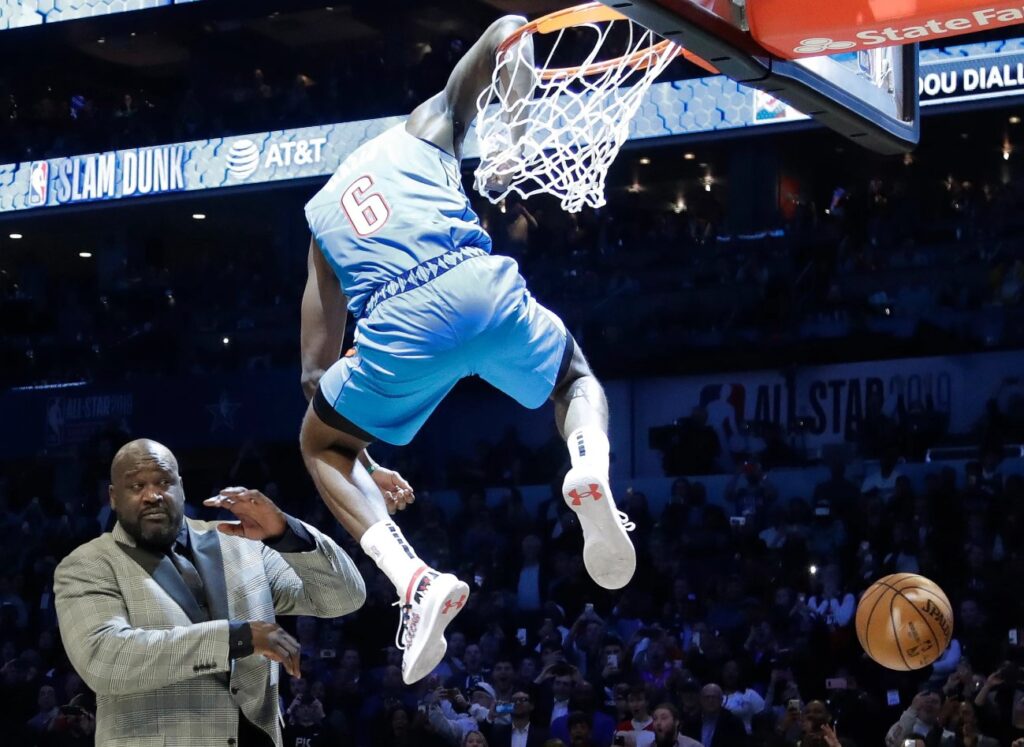The Big Aristotle: Shaquille O’Neal’s Legendary Journey from Military Kid to NBA Icon
Throughout his illustrious basketball career, Shaquille O’Neal has been adorned with countless nicknames including “Big Aristotle,” “Most Dominant Ever,” “Diesel,” and “The Big Shamrock,” but what makes these monikers truly remarkable is that the seven-foot-one giant created most of them himself, showcasing a wit and creativity that consistently outmaneuvered the sports journalists who covered his every move. This unique characteristic of self-branding combined with his playful and jocular personality distinguished Shaq from every other athlete of his generation, transforming him into not just a basketball player but a cultural phenomenon who understood the power of narrative and personal mythology long before social media made such concepts mainstream.

The trajectory of Shaquille O’Neal’s life reads like a carefully crafted Hollywood script, beginning with his unconventional upbringing under the guidance of his mother Lucille and his military stepfather Phillip Harrison, whom he affectionately called “the Sarge,” a relationship that would instill in him the discipline and work ethic that would later serve him well during his professional career. Growing up in a military family meant constant relocation, forcing young Shaq to adapt to new environments, schools, and social circles with remarkable frequency, a nomadic childhood that would later contribute to his ability to connect with diverse audiences and teammates throughout his basketball journey.
His formative years at Louisiana State University showcased the raw potential that would eventually revolutionize professional basketball, as he dominated college competition for two seasons while earning All-American honors twice and capturing the prestigious NCAA men’s basketball player of the year award in 1991, achievements that served as mere previews of the dominance he would later display on the professional stage. The decision to leave LSU early and declare for the 1992 NBA Draft represented a pivotal moment not just in his personal career but in the broader landscape of professional basketball, as his selection as the number one overall pick by the Orlando Magic would immediately elevate a struggling expansion franchise into playoff contention.
During his rookie campaign with the Orlando Magic, Shaquille O’Neal’s immediate impact was nothing short of extraordinary, as he averaged 23.4 points and 13.9 rebounds per game while transforming a previously irrelevant franchise into a competitive force that barely missed the playoffs, earning him the Rookie of the Year award and establishing himself as the most dominant center to enter the league since Kareem Abdul-Jabbar. The addition of Anfernee “Penny” Hardaway in the following season created one of the most dynamic duos in NBA history, with Penny’s exceptional court vision and scoring ability perfectly complementing Shaq’s overwhelming physical presence in the paint, resulting in a partnership that would elevate the Magic to unprecedented heights.

The pinnacle of Shaq’s Orlando tenure came during his third season when he led the league in scoring and guided the Magic to their first NBA Finals appearance, where they faced the Houston Rockets and his basketball idol, the legendary center Hakeem Olajuwon, in what would become a masterclass in post play and basketball fundamentals. Despite Shaq’s dominant regular season performance, Olajuwon’s superior experience, footwork, and basketball IQ proved decisive in the Finals, as the Dream outplayed the younger center in a series that served as both a humbling experience and a valuable learning opportunity for the future Hall of Famer.
The disappointment of losing in the Finals, combined with the Magic’s subsequent struggles and organizational instability, ultimately led to Shaq’s departure from Orlando and his high-profile signing with the Los Angeles Lakers, a franchise that had fallen into irrelevance following the decline of the Showtime era but was desperately seeking to reclaim its position among the NBA’s elite franchises. Jerry West’s successful recruitment of Shaquille O’Neal represented one of the most significant free agency acquisitions in NBA history, as the Lakers’ massive financial investment would soon pay dividends in the form of championship banners and restored prestige for one of basketball’s most storied organizations.
The early years of Shaq’s Lakers tenure were marked by playoff disappointments and near-misses, as talented rosters featuring a young Kobe Bryant consistently fell short of championship expectations despite their obvious depth and potential, creating frustration among fans and management who had invested heavily in creating a championship-caliber team. Everything changed with the arrival of Phil Jackson as head coach in 1999, whose zen-like approach and triangle offense system provided the perfect framework for maximizing both Shaq’s dominant post presence and Kobe’s emerging superstar abilities, creating a synergy that would define NBA excellence for the next half-decade.

The Lakers’ championship run from 2000 to 2002 represented the absolute peak of Shaquille O’Neal’s basketball powers, as he averaged over 30 points per game in multiple playoff runs while dominating the Finals with performances that established him as arguably the most unstoppable force in NBA history, systematically dismantling opposing defenses with his devastating drop-step move and thunderous dunks that became his signature calling card. During this golden period, every opposing team’s strategy revolved around containing Shaq, leading to rule changes, innovative defensive schemes, and the famous “Hack-a-Shaq” strategy that teams employed out of sheer desperation when facing his overwhelming physical superiority.
The eventual dissolution of the Lakers dynasty following their 2004 Finals loss to the Detroit Pistons was precipitated by the growing tension between Shaq and Kobe, two alpha personalities whose relationship had deteriorated beyond repair despite their shared success, ultimately forcing management to choose between their two superstars in a decision that would reshape the franchise’s future. While Shaq would go on to capture another championship with Dwyane Wade and the Miami Heat, proving that his basketball brilliance transcended any single team or partnership, it was during his Lakers years that he truly cemented his legacy as potentially the greatest center to ever play the game, a dominant force whose combination of size, athleticism, and basketball intelligence may never be replicated in the modern era.